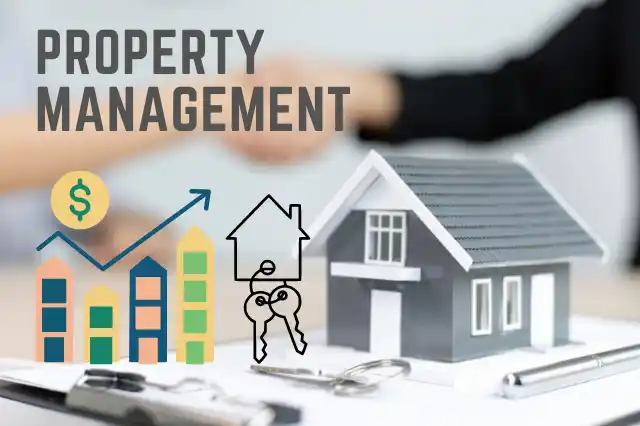Property management refers to the process of managing and maintaining a property, which can range from residential apartments to commercial buildings.
Generally, Property managers are responsible for ensuring that the property is in good condition, well-maintained, and generating a positive return on investment for the owner.
In this article, we’ll dive into the world of property management, learn what is property management, and explore what it entails, the benefits, responsibilities, and the key elements of effective property management.

What is Property Management?
Property management is the process of managing and maintaining real estate properties, including residential, commercial, and industrial properties.
It is the process of overseeing the day-to-day operations of a property, including maintenance, repairs, rent collection, and tenant relations.
Whether you’re an owner of multiple properties or an individual property owner, it’s crucial to have a good understanding of property management to ensure that your investment is well-maintained and generates positive returns.
Also, as a property manager, it is essential to maximize the return on your investment while minimizing the headaches of property ownership.
» RELATED: BEST Types Of Real Estate Investments To Invest
What is a Property Management Company?
A Property Management Company is a business that provides a range of services to property owners to help them manage their real estate investments. They are a company that simply manages a large property for the benefit of all the tenants and the landlords.
The services offered by property management companies typically include finding tenants, rent collection, maintenance and repairs, budgeting, drawing up the tenancy agreement, marketing, and advertising for rental properties, compliance with local laws and regulations, etc.
The primary goal of a property management company is to help property owners maximize their returns on investment while minimizing their stress and workload.
By outsourcing the day-to-day management of their properties to a property management company, property owners can focus on other aspects of their investments and personal lives, while leaving the property management experts to handle the complexities of running a rental property.
Property management companies typically have a team of experienced professionals with a deep understanding of the real estate market, local laws and regulations, and the needs of tenants.
They use their expertise and resources to provide a high level of service to property owners and tenants, while also ensuring that properties are well-maintained and operated in a financially responsible manner.
Why is Property Management Important?
Property management is essential for several reasons. Firstly, it ensures that the property is well-maintained, which is crucial for maintaining its value and ensuring its longevity.
Secondly, property management is important for generating positive returns on investment. By managing the property effectively, a property manager can ensure that the property is generating a stable income, which can be used for future investments or other purposes.
The Benefits of Property Management
One of the primary benefits of property management is the peace of mind it provides property owners.
Property management takes care of the day-to-day responsibilities of property ownership, freeing up the owner’s time and energy to focus on other things. Additionally, property management companies have the expertise, resources, and knowledge to handle the complexities of property ownership, from tenant relations to maintenance and repairs.
Another benefit of property management is that it helps to increase the value of the property.
Property management companies have the knowledge and experience to make informed decisions about property improvements, marketing strategies, and rent pricing, all of which can help to increase the value of the property.
» RELATED: How To Become a Property Manager With No Experience
Disadvantages of Hiring a Property Manager
There might not be all positives in your favor, sometimes you might encounter some negatives as well. One of the reasons is that property managers are not always looking out for your best interest; they are looking to make a buck at your expense.
Their main priority is to put whoever they can get their hand on in your property so they can make money.
They don’t get paid unless they have a tenant in your house. Sometimes you get a deadbeat tenant in your rental, and it could result in a long painful, expensive experience. And throughout this long expensive experience, both the property manager and the tenant wins and you lose.
Responsibilities of a Property Manager
The responsibilities of a property manager can vary depending on the type of property being managed and the agreement between the owner and the property manager. However, the following are some of the common responsibilities of a property manager:
- Maintenance and Repairs
The property manager is responsible for ensuring that the property is well-maintained and in good condition.
This includes ensuring that all necessary repairs are carried out in a timely manner, as well as conducting routine maintenance tasks, such as cleaning and landscaping. - Rent Collection
The property manager is responsible for collecting rent from tenants, depositing it into the owner’s account, and ensuring that the rent is paid on time.
The property manager must also be familiar with local rental laws and regulations and ensure that the owner’s rights are protected. - Tenant Relations
The property manager is responsible for maintaining good relationships with tenants, addressing any complaints or issues, and ensuring that tenants are satisfied with the property.
This includes conducting regular inspections and ensuring that tenants are complying with the lease agreement.
Key Elements of Effective Property Management
To be effective, property management must have several key elements in place, including:
- Good communication: Property management must be able to communicate effectively with tenants, landlords, contractors, and other stakeholders to resolve issues and maintain good relationships.
- Attention to detail: Property management must be detail-oriented and organized to ensure that all tasks are completed correctly and in a timely manner.
- Strong leadership skills: Property management must be able to lead and motivate a team to achieve the goals of the property.
- Knowledge of local laws and regulations: Property management must have a deep understanding of local laws and regulations to ensure that the property complies with all legal requirements.
- Financial expertise: Property management must have a solid understanding of finance and budgeting to ensure that the property is financially sound and that rent and expenses are managed effectively.
READ MORE:
» Real Estate Investment Strategies
» How to Buy a House Using a Mortgage
» 7 Top Skills Needed to Be a Successful Property Manager
Amazon’s Best Seller Books For Property Management
- Managing Rental Properties – By Heather & Brandon Turner
- The ABCs of Property Management – By Ken McElroy
- Property Management Kit For Dummies – By Robert S. Griswold
- Every Landlord’s Guide to Managing Property – By Michael Boyer Attorney
- Build a Rental Property Empire – By Mark Ferguson, Gregory Helmerick
- Every Tenant’s Legal Guide – By Janet Portman Attorney, Ann O’Connell Attorney
FAQ – Property Management
1. What is the role of property management?
The role of property management is to manage real estate properties, including residential, commercial, and industrial properties. Property management is responsible for marketing and advertising the property, screening and selecting tenants, collecting rent, responding to tenant inquiries, maintaining and repairing the property, managing the budget and finances of the property, and ensuring compliance with local, state, and federal laws and regulations.
2. What are the benefits of property management?
The benefits of property management include peace of mind, increased property value, and the expertise, resources, and knowledge to handle the complexities of property ownership. Property management also helps to free up the owner’s time and energy to focus on other things.
3. What are the key elements of effective property management?
The key elements of effective property management include good communication, attention to detail, strong leadership skills, knowledge of local laws and regulations, and financial expertise.


